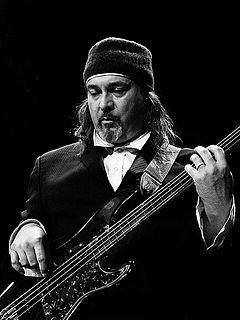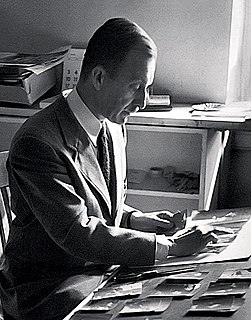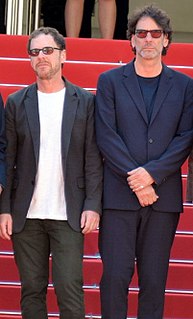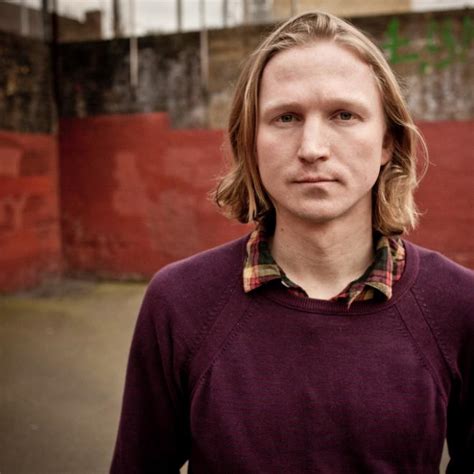A Quote by Martin Scorsese
The tone of the picture and the atmosphere was in my head and in my blood in a way once I'd decided to make the picture. I had to find my way through that to choose, select, emphasise certain visual elements and sound.
Related Quotes
Ambient means the natural center or atmosphere of a space. All music has that in it- a space or center. I think it just means the atmosphere or what defines the environment of sound and maybe removing the more destructive, harsh elements and harder rhythmic elements and you get down to the stillness that's inherent. There's an ambient quality in every sound. You may have to enhance that to hear it or bring it out in a different way but there is that in every environmental sound.
We all create expectations of what we would like to happen after a decision is made. The picture in our mind's eye might have served a valuable function in helping to make a decision. But once the decision is made, let the picture go. Since you can't control the future, the picture can create unhappiness if it's not fulfilled. Disappointment may make you miss the good that can come out of every situation in which you find yourself.
Martin Scorsese was one of the few who had not been an assistant. Most of the guys had been an assistant and worked their way up. But I had seen an underground picture he had made in New York, a black-and-white film. I had done a picture for American International, about a Southern woman bandit, the Ma Barker story, and it was very successful, and I had left to start my own company, and they wanted me to make another one.
It is a great honor for me to be compared to Henri Cartier-BressonBut I believe there is a very big difference in the way we put ourselves inside the stories we photograph. He always strove for the decisive moment as being the most important. I always work for a group of pictures, to tell a story. If you ask which picture in a story I like most, it is impossible for me to tell you this. I don't work for an individual picture. If I must select one individual picture for a client, it is very difficult for me.
Surprise quality can be achieved in many ways. It may be produced by a certain stimulating geometrical relationship between elements in the picture or through the human interest of the situation photographed or by calling our attention to some commonplace but fascinating thing we have never noticed before or it can be achieved by looking at an everyday thing in a new interesting way.
Madonna, I think, is the greatest visual musical artist that we've ever had. If you look at her photo log, the photographers that she was able to work with throughout her career framed her in the proper way. It was the proper context. It was that visual that made sure that everything was gonna cut through in a certain way.
Sometimes, in certain stories, I think we know at the outset essentially what the tone is going to be, or it becomes important that we're groping toward some kind of story with a certain kind of tone that we both get somehow. But I don't think how that's combined with other elements is ever in any way overtly discussed.




































